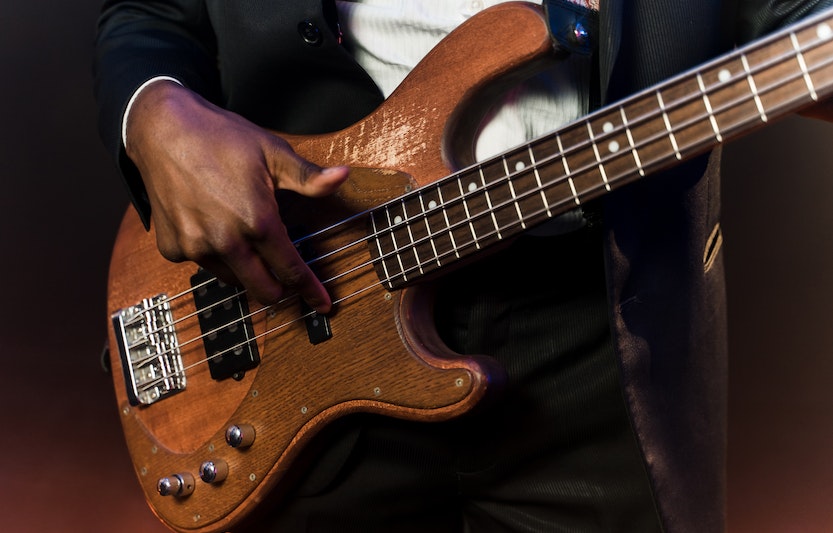
Have you ever wondered if you should buy a vintage guitar to play? Many guitarists get quite excited about vintage guitars.
These instruments tend to have unique finishes, tones, and a rich history. Usually, it’s only collectors and more experienced musicians who buy vintage guitars. While buyers of these instruments do sometimes play them, they do so only when they want a specific sound effect or on special occasions.
But what if there is a vintage guitar you really want to use as your primary instrument? You may be willing to spend the extra money for the privilege. However, is it a good idea? Today we’ll explore the question of whether you should buy a vintage guitar to play.
Associated Costs
One of the biggest reasons not to buy a vintage guitar is finances. Simply said, vintage guitars tend to be very pricey instruments. The cost of the instrument itself is not where your spending will end. Your musical instrument insurance may become particularly high. After all, this is not just a regular possession. It is a collector’s item.
You’ll also have to spend money on maintenance in order to keep these delicate instruments in good shape. If you don’t want its value to deteriorate, you’ll have to get special strings and have an expert manage minor fixes. To most guitarists, this might feel strange, particularly if you are used to maintaining your own guitar.
Limitations When Playing
Theoretically, you can do anything with any electric guitar. You can add effects and change the sound using an amp or an app. You can play the same chords, alter the tuning, shred, and create harmonics. However, when you’re playing a vintage guitar, you may struggle to do some of these things.
The fretboards of some vintage guitars make shredding very difficult. It will also take some work to get modern sounds out of your vintage guitar. The ‘vintage’ factor is part of its appeal, after all.
For dedicated guitar players, a vintage guitar is ideal only for specific occasions.
Too Much Care
If you’ve never handled a collector’s item, you may not be aware of how cautious you’ll become with it. You are dealing with something that is rare and irreplaceable. You naturally give it care, as you should. For some, this level of care may not be sustainable if using the vintage guitar as your main instrument.
Of course, you are going to treat any guitar with respect and care. But a regular guitar can definitely take more use, accidental hits, and bumps better than a vintage one. Naturally, wear and tear are unavoidable on a guitar. However, playing a vintage guitar as your main instrument and with passion may be difficult, because it is not meant to go through so much wear and tear.
Personalization and Alterations
Playing guitar is about more than making music. You also make the instrument your own. It becomes very personal, and you express this by adding personal touches to the guitar or making alterations to it. These may be aesthetic changes to different parts of the guitar or things that impact the sound.
You can personalize and alter a vintage guitar, if you wish. However, this may come at a significant cost. Additionally, the value of the guitar will depreciate. It will no longer be the pristine collector’s item you initially paid for.
If you never intend to sell your guitar, this may not matter to you. But you might just be surprised by how difficult it is to commit to these changes. You may even get stressed about every single thing that you want to do with the guitar. When you do make a change, you may spend a tremendous amount of time wondering whether you did the right thing.
Ultimately, you may decide it is not worth risking the guitar’s value in order to personalize it. You end up owning a collector’s item instead of an instrument that feels personal to you.
Buy a Vintage Guitar as an Investment
Some folks think of buying a vintage guitar as an investment. There is definitely a lot of truth to that, as many vintage guitars do go up significantly in value with the years. However, it is worth noting that for this to happen, the guitar needs to be in good shape to begin with and also well maintained.
In order to be able to tell whether a vintage guitar is a good investment, you need to be quite savvy about guitars. You may also employ the help of someone that knows about electric guitar history and has a clear understanding of the market for these instruments.
Even then, maintenance and proper care are still paramount if you’re buying a vintage guitar as an investment. In other words, if you’re buying a vintage guitar as an investment, avoid making it your main instrument. After all, you would not take your precious investment to a rock club and risk a fall, scratch and any other mishaps common to live gigging.
Buying a vintage guitar is usually a good idea for collectors or people who already have a guitar for the purpose of practicing and performing. Others may buy it as an investment, but this comes with risk and demands a high level of knowledge.
Whatever you choose, get yourself a guitar that you can treat as your own, rather than something that is rare and expensive. Yes, you buy a vintage guitar to play if you really desire it, but be aware of what this purchase involves. Let us know in the comment section below what are your feelings toward vintage guitars.


